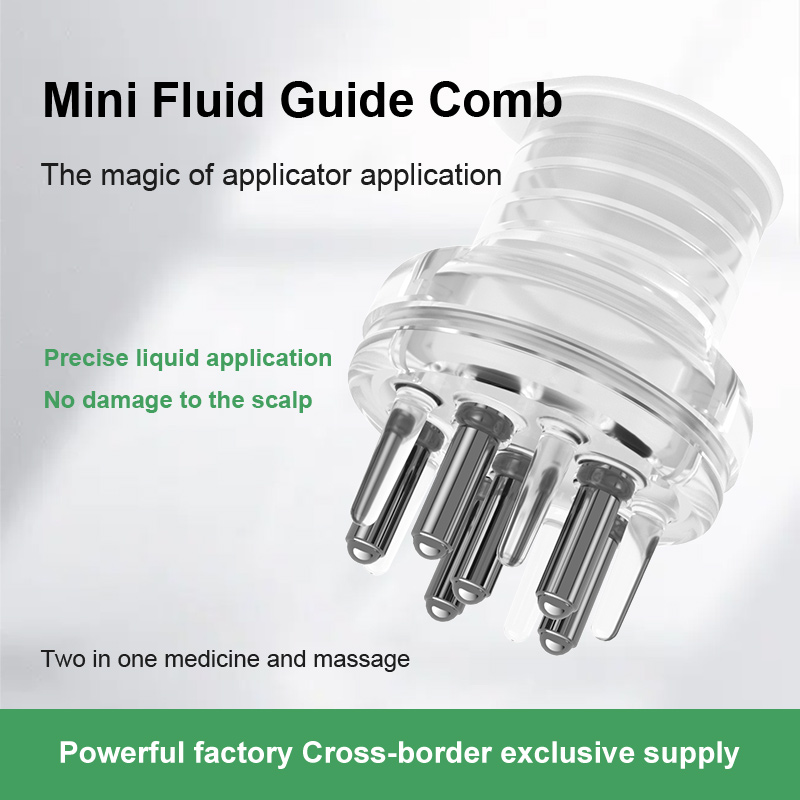Unlocking Efficiency: Key Performance Metrics for Evaluating the Mini Fluid Guide Comb
2024-02-29
In today's competitive industrial landscape, efficiency and precision in fluid handling processes are paramount for ensuring optimal productivity and product quality. The Mini Fluid Guide Comb has emerged as a versatile solution to streamline fluid handling operations across industries. However, to make informed decisions about its adoption, users must carefully evaluate key performance metrics and specifications. In this blog, we'll delve into the essential factors that users should consider when evaluating the Mini Fluid Guide Comb.
Flow Rate and Dispensing Precision
One of the primary performance metrics to consider is the flow rate and dispensing precision of the Mini Fluid Guide Comb. Users should assess the device's capability to regulate fluid flow accurately and consistently, ensuring precise dispensing for various applications. The ability to maintain a stable flow rate, even with fluctuating fluid viscosities or pressures, is crucial for achieving uniform product quality and minimizing waste.
Material Compatibility and Chemical Resistance
Another critical factor to evaluate is the material compatibility and chemical resistance of the Mini Fluid Guide Comb. Users should ensure that the materials used in its construction are compatible with the fluids being handled and resistant to corrosion, abrasion, and degradation caused by harsh chemicals or environmental factors. This ensures long-term durability and performance reliability in demanding industrial environments.
Temperature Stability and Operating Conditions
Temperature stability and suitability for operating conditions are essential considerations when evaluating the Mini Fluid Guide Comb. Users should assess its performance across a range of temperatures and environmental conditions to ensure consistent operation and reliability. The device should maintain its structural integrity and fluid control capabilities, even in extreme thermal conditions or challenging operating environments.
Durability and Longevity
Durability and longevity are key performance metrics that directly impact the cost-effectiveness of the Mini Fluid Guide Comb over its lifespan. Users should evaluate the device's resistance to wear, fatigue, and mechanical stress, ensuring that it can withstand the rigors of continuous industrial use without compromising performance or reliability. Additionally, factors such as maintenance requirements and service life expectancy should be considered to assess the overall value proposition of the device.
Ease of Installation and Maintenance
The ease of installation and maintenance is another crucial aspect to consider when evaluating the Mini Fluid Guide Comb. Users should assess the device's design features, such as mounting options, connection interfaces, and accessibility for maintenance tasks. A user-friendly design that simplifies installation, calibration, and routine maintenance can contribute to reduced downtime and increased operational efficiency.
Compatibility with Existing Systems
Lastly, users should evaluate the compatibility of the Mini Fluid Guide Comb with existing fluid handling systems or equipment. Compatibility considerations include fluid connections, control interfaces, and integration capabilities, ensuring seamless integration into existing workflows without the need for extensive modifications or retrofitting.
Conclusion
In conclusion, the Mini Fluid Guide Comb offers a versatile solution for optimizing fluid handling processes across industries. By carefully evaluating key performance metrics and specifications such as flow rate, material compatibility, temperature stability, durability, ease of installation, and compatibility with existing systems, users can make informed decisions about its adoption and harness its full potential to unlock efficiency, precision, and productivity in fluid handling operations.



